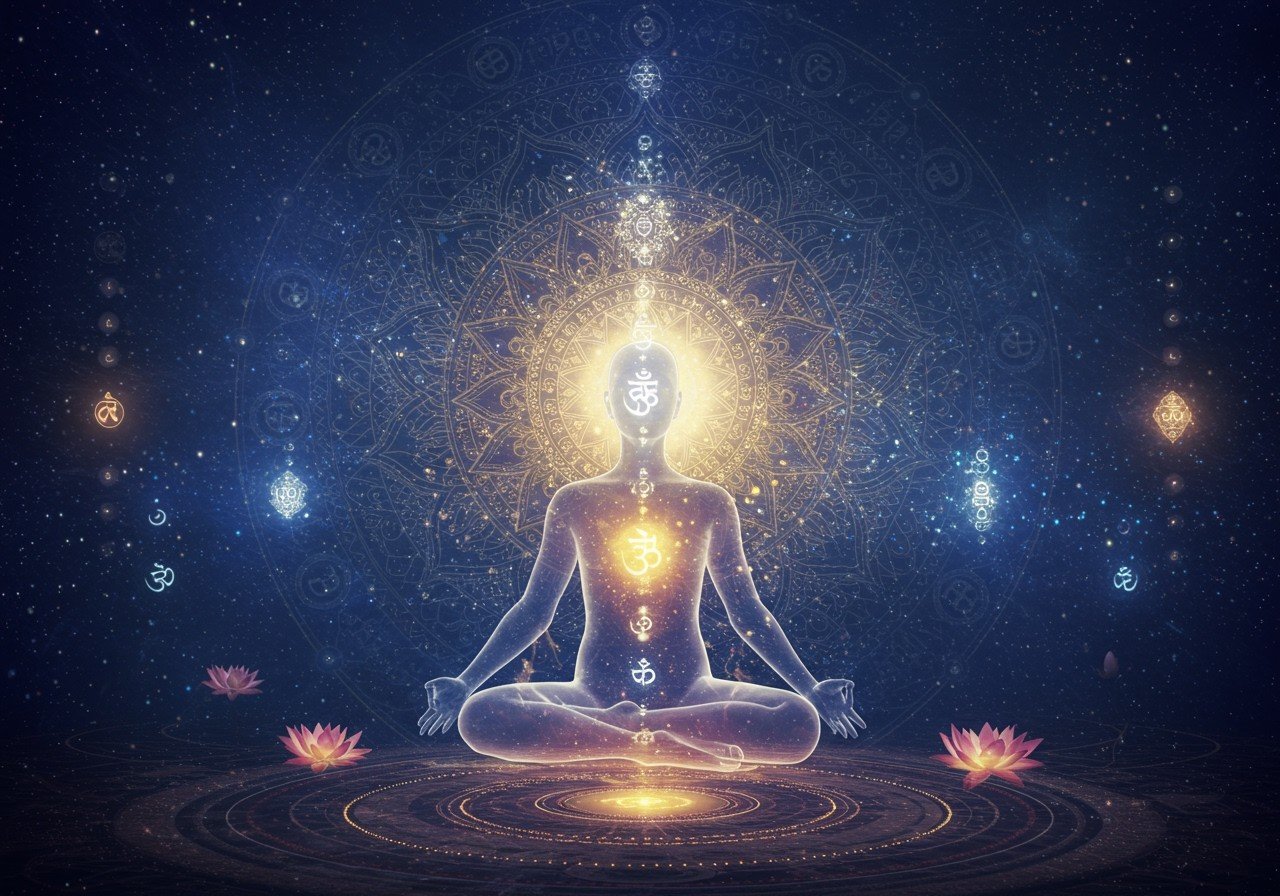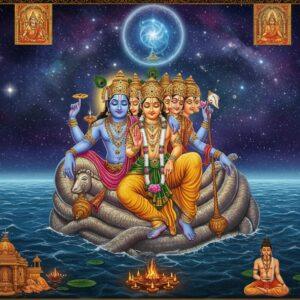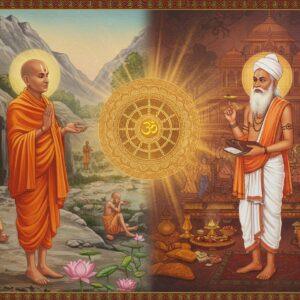
Hindu philosophy delves deep into the concept of self, revolving around “Atman,” the Sanskrit word for “essence, breath.” Atman represents the true, eternal self, the pure consciousness residing within each individual. This exploration of self offers profound insights, shaping the Hindu worldview and influencing modern discussions on identity and consciousness. Understanding Atman and its relationship to Brahman provides timeless wisdom relevant to today’s life.
Understanding Atman: The True Self
Atman, often referred to as the “inner self” or “soul,” is central to Hindu philosophy. It’s considered eternal and unchanging, distinct from the ever-changing body and mind. Atman plays a vital role in shaping one’s identity and spiritual journey. Understanding Atman is believed to be the first step towards self-realization and liberation (Moksha) from the cycle of birth and death (samsara). The Upanishads, ancient Hindu scriptures, emphasize that realizing Atman is the ultimate purpose of life, offering guidance for personal growth and spiritual understanding. For further exploration on spiritual retreats and ashrams, consider reading our guide on planning your spiritual retreat.
Exploring Brahman: The Universal Self
Brahman represents the ultimate reality, the cosmic principle, or the universal consciousness in Hindu philosophy. It is the all-pervading spirit, existing everywhere and within everything. Unlike Atman, which is the individual self, Brahman is the collective, universal consciousness. The Upanishads teach that understanding Brahman is key to achieving liberation and eternal bliss. They describe Brahman as both the source and the sustainer of all existence, immanent (within us) and transcendent (beyond us). To delve deeper into Hindu scriptures, you can explore our article on Hindu scriptures.
The Interconnection: Atman, Brahman, and You
The relationship between Atman and Brahman is a core concept in Hindu philosophy. Some schools of thought, like Advaita Vedanta, propose that Atman is identical to Brahman, signifying that the individual self is not separate from but a part of the universal consciousness. Realizing this unity is believed to be the path to Moksha, or liberation from the cycle of birth and death. This profound interconnectedness shapes our understanding of our place in the universe. Recognizing the unity of Atman and Brahman can lead to the dissolution of the ego, fostering inner peace and a sense of fulfillment. This understanding transforms our perception of ourselves and others, fostering compassion, connection, and deeper relationships. You can explore this further in our blog post on connecting with your inner self.
Living the Philosophy: Practical Applications
Integrating the teachings of Atman and Brahman into daily life can bring a sense of harmony and purpose. Actions rooted in love, selflessness, and respect for all beings reflect this wisdom. Practices like meditation, yoga, and mindfulness can be instrumental on this journey of self-discovery. These practices can help quiet the mind, connect with the inner self, and cultivate a deeper understanding of Atman and Brahman. You can discover more about incorporating these practices into your life with our resources on India’s spiritual heart. To deepen your practice, consider exploring our wide selection of deity idols and puja items at Poojn.in.
Hindu Philosophy and Modern Science
Intriguingly, modern science, particularly quantum physics, offers parallels to these ancient ideas. Quantum physics explores the interconnected nature of the universe, resonating with the Hindu view of the interconnectedness of Atman and Brahman. Scientists are increasingly exploring concepts of consciousness and reality through the lens of quantum physics, bridging the gap between science and spirituality. Understanding these parallels can lead to a more holistic perspective on existence, connecting the seen and unseen, and blending tradition with modern thought.
Embracing the Journey Within
At the heart of Hindu philosophy lies a profound invitation to embark on a journey of self-discovery. Understanding Atman and Brahman offers a powerful lens through which to view ourselves and the universe. This understanding can provide solace and meaning, helping us transcend daily challenges and connect more deeply with the world around us. This journey is not merely about intellectual understanding; it is about embodying these truths in our daily lives. To enhance your spiritual journey, explore our collection of incense and learn about sacred offerings. Embracing these teachings can bring about a sense of harmony in our thoughts and actions. It encourages us to cultivate kindness and compassion, practice mindfulness, and seek unity in diversity. As we journey within, we may discover a wellspring of peace and joy, guiding us towards the ultimate goal of liberation and eternal bliss. Poojn.in offers a wide variety of spiritual resources and products to support you on this path. Visit www.poojn.in today to explore our offerings.
FAQs on the Concept of Self in Hindu Philosophy
What is Atman in Hindu philosophy? Atman is the essence of an individual, often described as the soul or true self. It is considered eternal, unchanging, and distinct from the body and mind. It is the pure consciousness that observes and experiences life.
How is Brahman related to Atman? Brahman is the ultimate reality, the cosmic principle, or universal consciousness. Different schools of Hindu philosophy have varying interpretations of the relationship between Atman and Brahman. Advaita Vedanta, for instance, posits that Atman is identical to Brahman, while other schools maintain a distinction. Deepen your understanding with our article on Ramcharitmanas.
How does Hindu philosophy explain the concept of self? Hindu philosophy views the self not as merely the physical body or mind but as Atman, the eternal and divine spark within. It emphasizes self-realization – understanding one’s true nature as Atman – as the path to liberation. Explore our blog post on finding your guru for further guidance.
Why is understanding Atman important? Understanding Atman is considered crucial because it can lead to self-realization and liberation (Moksha). It helps individuals recognize their true nature and their connection to the divine, ultimately leading to a more fulfilling life. Learn more about the significance of Hindu rituals in our post on sacred offerings.
What is the relationship between Hindu philosophy and quantum physics? Some scholars and thinkers have drawn parallels between certain concepts in Hindu philosophy, like the interconnectedness of all things, and findings in quantum physics. Both explore the nature of reality and consciousness, suggesting a deeper underlying unity. Expand your knowledge with our blog post on bhajans and kirtans.
How does the concept of Brahman influence daily life? The concept of Brahman can influence daily life by fostering a sense of reverence for all of creation. Recognizing the divine in everything can encourage compassion, respect, and a sense of unity with the world. Our Hanuman Chalisa blog post can further enrich your understanding of devotion and spiritual practices.


